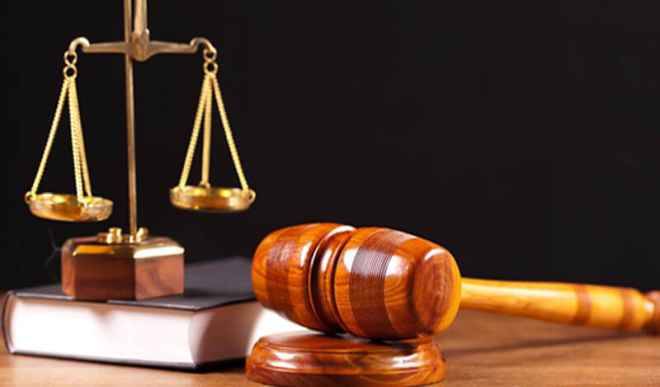An Ikeja High Court, on Tuesday, struck out the corruption suit the Economic and Financial Crimes Commission (EFCC) filed against Justice Rita Ofili-Ajumogobia, a dismissed judge of the Federal High Court, and Mr Godwin Obla, a Senior Advocate of Nigeria, SAN.
Delivering a ruling, Justice Hakeem Oshodi held that, based on the judicial precedent set by the case of Justice Nganjiwa V. FRN, the High Court lacked jurisdiction to hear the suit as the EFCC “jumped the gun” in filing the first amended charge.
He noted that in spite of the anti-graft commission being aware of the decision in Nganjiwa’s case, regarding the proper procedure to discipline erring judicial officers, the EFCC still went ahead with the trial by calling more witnesses.
“As at Monday, Dec. 11, 2017, the EFCC was aware of the decision reached by the Court of Appeal in Nganjiwa vs FRN. As at that date, the amended information was yet to be filed and the 12th prosecution witness was still giving evidence.
“The prosecution persisted like a bull running amok and still called two more witnesses and precious judicial time was wasted.
“We have not found a way in the judicial atmosphere to discipline or penalise an agency of government through fines or costs.
“In conclusion, the court has no jurisdiction to hear the first amended charge of Feb. 21, 2018 of 31 counts. This suit is hereby struck out.”
NAN reports that while delivering his judgment in the Nganjiwa’s case, Justice Obaseki Adejumo of the Court of Appeal held that the EFCC does not have power to investigate and prosecute serving judicial officers.
Adejumo said that National Judicial Council (NJC) must first strip the appellant (Hon. Justice Nganjiwa) of his judicial standing before he could be charged.
The Court of Appeal judge had further stated that serving judicial officers can only be prosecuted for offence like murder, stealing etc done outside the discharge of their duties.
That once the offence was committed in the discharge of their duties, they must first be tried by NJC. (NAN)

 Join Daily Trust WhatsApp Community For Quick Access To News and Happenings Around You.
Join Daily Trust WhatsApp Community For Quick Access To News and Happenings Around You.



